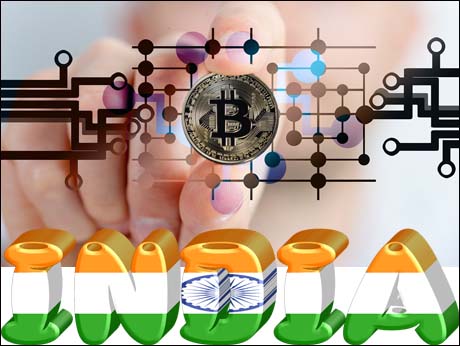
March 8 2020: The Supreme Court of India passed judgment earlier in the week, striking down the central bank’s April 2018 circular which bans regulated financial institutions from providing services to crypto businesses. The court held that the Reserve Bank of India circular was unconstitutional.
The supreme court concluded hearing the arguments against the RBI ban on Jan. 28, after almost two years since it first decided to hear the case. The court heard extensive arguments from the counsel for the Internet and Mobile Association of India (IAMAI), Ashim Sood, followed by the counsel representing several crypto exchanges, Nakul Dewan. It also heard the arguments for the ban, from the central bank’s counsel, Shyam Divan.
The RBI issued a circular in April 2018 banning regulated financial institutions from providing services to crypto businesses. The ban went into effect three months later and banks subsequently closed the accounts of crypto exchanges, forcing some of them to shut down, including Zebpay, Coindelta, and Koinex.
Following the judgment, the National Association of Software and Service Companies (Nasscom), tweeted: We welcome the supreme court’s decision to lift RBI’s ban on trading in cryptocurrency. We believe that banning tech is not the solution, a risk-based framework must be developed to regulate and monitor cryptocurrencies and tokens.|
Nischal Shetty, CEO of local crypto exchange Wazirx who has been spearheading the “#Indiawantscrypto” social medial campaign, views the ruling as a great victory. “#Indiawantscrypto is a success after 489 days. Overall a great sentiment for crypto globally and for Indian crypto ecosystem....... With over 1 billion population, the Indian market is a sleeping giant. I’m confident that this judgment will have positive impact on the global crypto ecosystem. This will lead to more startups in crypto in India. Hundreds of startups will be created. VC investment will activate in the sector. More jobs.”(Source Bitcoin news)
Other reactions
Sajai Singh, Partner, J. Sagar Associates: "Yesterday the Supreme Court, in the Writ Petition # 528 of 2018 (Internet and Mobile Association of India vs. the Reserve Bank of India) set aside the RBI circular dated April 6, 2018, directing entities regulated by the RBI not to deal with virtual currencies. In a very thought out judgement quoting Satoshi Nakamoto amongst others, the Supreme Court has, based on grounds of proportionality, officially lifted the ‘ban’ on cryptocurrencies in India. Satoshi’s view on the root problem with conventional currency and the trust placed on it; suggesting that the Central Bank is to be trusted not to debase the currency, however, history of fiat currencies may be full of breaches to that trust. Ironically, the SC, while acknowledging that virtual currencies were meant to kill the demon of a central authority, has held that the RBI has the requisite power to regulate or prohibit virtual currencies. Supported by the argument that anything that may pose a threat to or have an impact to the financial system of India, can be regulated or prohibited by the RBI, despite the activity not forming part of the credit system or payment system. The Payment and Settlement Systems Act, 2007 empowers the RBI to frame policies and issue directions to banks who are system participants, with respect to transactions that fall under the category of payment obligations or payment instruction, if not a true play payment system.|
RBI consistently took a stand that it has not prohibited virtual currencies in India. In fact the Inter-Ministerial Committee constituted on November 2, 2017, which recommended a specific legal framework including the introduction of a new law namely, Crypto-token and Crypto-Asset (Banning, Control and Regulation) Bill, 2018, was of the opinion that a ban might be an extreme tool and the same objectives may be achieved through regulatory measures. Of course there was a change of thinking in the Committee when they presented their final report and recommended a complete ban on private crypto currencies through a proposed legislation – Banning of Cryptocurrency and Regulation of Official Digital Currency Act, 2019. This Bill recommended creation of a digital rupee as legal tender by the central Government in consultation with the RBI; and at the same time recognising official foreign digital currencies in India.
The RBI circular, while not banning cryptocurrencies, took away the lifeline of virtual currency trading and functioning of virtual currency exchanges by disconnecting them with the regular banking sector. Post the SC judgement, cryptocurrencies are here to stay, so now more than ever it’s important that India (read RBI) get ahead and regulate them correctly.
Shravan Charya, Founder & CEO, SocioLadder, a technology-based global platform to connect grassroots-level charities doing spectacular work with individual, corporate and institutional donors across the world. Any system that engineers financial transactions that are directly linked to or influences market forces needs regulation. The primacy of an entirely market-driven value of the exchange is a myth, even in advanced currency markets. While blockchain technology applied in the context of crypto-currencies fosters the immutability of market forces, it must express that independence within the narratives of the Securities and Exchange statutes of India. We can expect to see a few key circulars from RBI about how this Supreme Court judgment plays out in the Indian currency exchange markets, the significant volumes of which is mostly managed by state-owned banks.
We don't anticipate any major impact of this in the CSR sector, where spends are delinked completely from any sort of speculative value of exchange. Cryotocurrencies may play out well in the design and trading of Development Impact Bonds (DIBs), however its too early to think of such sophisticated instruments in the India CSR & Social Development landscape.